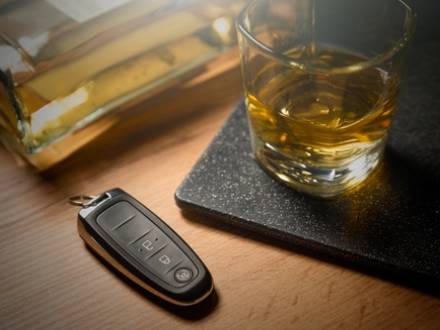How Much Alcohol is Too Much to Drive in Texas?
 When it comes to DWI (Driving While Intoxicated) charges in Texas, one of the most common questions we hear at The Dameron Law Firm is: How much alcohol does it take to be considered legally intoxicated? The answer depends on several factors — including your BAC (blood alcohol concentration), the time of driving, and even the timing of your blood test. Our Texas DWI defense attorney can help you understand the charges against you and what the options may be for building a tough defense.
When it comes to DWI (Driving While Intoxicated) charges in Texas, one of the most common questions we hear at The Dameron Law Firm is: How much alcohol does it take to be considered legally intoxicated? The answer depends on several factors — including your BAC (blood alcohol concentration), the time of driving, and even the timing of your blood test. Our Texas DWI defense attorney can help you understand the charges against you and what the options may be for building a tough defense.
What Is the Legal Limit for Alcohol in Texas?
Texas law defines intoxication in two main ways under Texas Penal Code § 49.01(2):
-
Loss of mental or physical faculties due to alcohol, drugs, or another substance
-
A blood alcohol concentration (BAC) of 0.08 percent or higher at the time of driving.
This 0.08 percent BAC level is known as the per se limit — meaning you are presumed legally intoxicated if your BAC is at or above that number, even if you show no visible signs of impairment.
DWI Means Intoxicated at the Time of Driving
A crucial legal distinction in Texas is that "Driving While Intoxicated" refers to your condition at the time you were actually driving, not at the time you were tested. This means that the state must prove you were intoxicated when you were operating the vehicle, not just later at the hospital or police station.
What Happens if You Have a BAC Over 0.15?
Texas law has an enhanced charge for individuals who have a BAC of 0.15 percent or higher — but here is what many people do not realize:
-
A BAC over 0.15 is measured at the time of testing, not necessarily at the time of driving.
-
This means you could be charged with a higher-level offense even if your BAC was lower when you were behind the wheel — especially if there was a delay in administering the test.
Timing is everything in a DWI case.
Why the Timing of a DWI Blood Tests Matters
When you are arrested for DWI, law enforcement may request a blood or breath test to determine your BAC. Breath tests give instant results, while blood tests are generally considered more reliable and are often used in court.
But here is the key issue: Blood alcohol concentration changes over time. Depending on how much and when you drank, your BAC could be rising or falling at the time of testing. A test taken one to two hours after you were pulled over might show a higher (or lower) BAC than when you were actually driving.
Retrograde Extrapolation: Estimating BAC at Time of Driving
To prove intoxication at the time of driving, prosecutors may use a method called retrograde extrapolation — a scientific process that estimates what your BAC would have been earlier based on the known result at the time of testing.
However, this process depends on several assumptions about:
-
When your last drink was consumed
-
How fast your body metabolizes alcohol
-
Whether your BAC was peaking or declining
Any inaccuracies in these assumptions can be challenged in court by an experienced DWI attorney.
How Much Alcohol Does It Take to Reach the Legal Limit?
BAC is influenced by body weight, sex, alcohol tolerance, timeframe of consumption, and food intake. As a general estimate:
-
A 160-pound male might reach a 0.08 percent BAC after three to four standard drinks in one hour.
-
A 120-pound female could hit the same BAC with two to three drinks.
Keep in mind:There is no one-size-fits-all answer when determining how much you need to drink to be over the limit. Even one drink could be enough for some individuals to test over the legal limit.
You Need a Skilled Fort Worth, Texas DWI Defense Lawyer
If you have been charged with DWI based on a blood or breath test, do not assume the results tell the whole story. At The Dameron Law Firm, we understand the science behind BAC testing, timing, and Texas DWI law. We fight to protect your rights and challenge flawed or misleading evidence, especially when it does not accurately reflect your condition at the time of driving.
Whether you are being charged with a standard DWI or with an enhanced offense due to a BAC of 0.15 or more, we are here to help. Call 817-222-0624 today for a free consultation with our experienced Tarrant County, TX DWI defense attorney. We will review your case, investigate your BAC results, and build a strong defense.

 817-222-0624
817-222-0624







